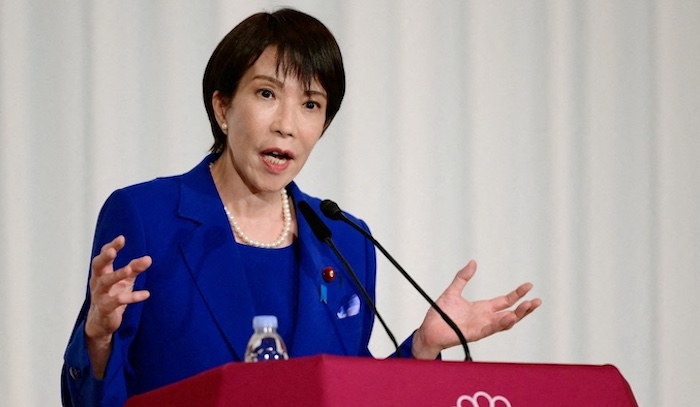
Hardline conservative Sanae Takaichi is on the verge of becoming Japan’s first female prime minister after securing a coalition deal with the right-wing opposition Japan Innovation Party, known as Ishin.
“I told Takaichi that we should move forward together,” Ishin’s leader and Osaka governor Hirofumi Yoshimura told reporters in Osaka on Monday. He said he would meet with Takaichi at 6 p.m. (0900 GMT) to finalise the alliance.
Yoshimura and Ishin’s co-leader, Fumitake Fujita, met with party lawmakers earlier in the day to discuss the coalition framework. Investors, anticipating a deal that could lead to increased government spending, sent the yen lower while the Nikkei share index surged nearly 3 percent to a record high.
The agreement would give the Liberal Democratic Party (LDP) and Ishin a combined 231 seats in the lower house, two short of an outright majority, but enough to ensure Takaichi’s likely victory in Tuesday’s parliamentary vote to select Japan’s next leader. She will need only a majority of ballots cast, not of all members, in any runoff vote.
To govern effectively, Takaichi will still need to secure support from smaller opposition parties, especially for an upcoming supplementary budget.
The deal follows the collapse of the LDP’s 26-year alliance with Komeito, which withdrew its support after Takaichi’s election as party leader. Komeito’s exit had triggered opposition talks that threatened to unseat the governing party for the first time in over a decade. Ishin’s decision to back the LDP now secures its grip on power.
Takaichi, regarded as a fiscal dove, has called for tax cuts and higher spending to ease the burden of rising inflation while criticising the Bank of Japan’s interest rate hikes. “Expectations for Takaichi’s economic policies, which include fiscal expansion and monetary easing, appear to be facilitating rising share prices and a weaker yen,” said Nomura Securities strategist Fumika Shimizu.
However, analysts say Ishin’s preference for small government and reduced spending could temper some of her economic plans.
On foreign and defence policy, Takaichi seeks to revise Japan’s pacifist postwar constitution to recognise its military, supports higher defence spending to counter China, and frequently visits Tokyo’s Yasukuni Shrine, seen by some Asian neighbours as a symbol of wartime aggression.
She has also called for stricter immigration policies and opposes reforms such as allowing women to keep their surnames after marriage, arguing they undermine traditional values.
Yoshimura said Ishin would not immediately seek cabinet positions in Takaichi’s government. “Right now, we’re still a group of lawmakers with no experience in government. So rather than asking for a ministerial post, we want to first focus on realising our policies as part of the ruling coalition,” he said in a television interview.
Faridah Abdulkadiri



